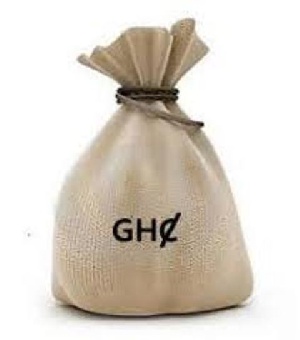- Home - News
- TWI News | TV
- Polls
- Year In Review
- News Archive
- Crime & Punishment
- Politics
- Regional
- Editorial
- Health
- Ghanaians Abroad
- Tabloid
- Africa
- Religion
- Election 2020
- Coronavirus
- News Videos | TV
- Photo Archives
- News Headlines
- Press Release
Business News of Saturday, 14 February 2015
Source: GNA
Lambussie-Karni District exceeds revenue target
The Lambussie-Karni District Assembly in the Upper West Region, has by dint of hard work, exceeded its revenue target for last year, by 107.17 percent.
Backed by the zeal to bring development to its people, the Assembly was motivated to collect a total amount of GH?117,882.64, as Internally-Generated Funds (IGF), exceeding the initial estimate of GH?110,000 during the year under review.
Mr. Bom Kofi Dy-yaka, Lambussie-Karni District Chief Executive (DCE), who disclosed this during the district’s first-ever social accountability forum at Lambussie, said the Assembly could only function effectively based on the availability of revenue, since it was an important prerequisite for the implementation of programmes and plans.
He said this was achieved owing to a review of the Assembly’s revenue mobilization strategies, such as the enforcement of the revenue task force, provision of a vehicle for revenue mobilization, operations of the Assembly’s grader, and vigorous revenue sensitization drive, among others.
The DCE also announced that the Assembly had received a total amount of GH¢516,174.41, as its share of the District Assemblies Common Fund (DACF) for the third and fourth quarters of 2013, and the first quarter of 2014, and had since been appropriately disbursed.
Mr. Dy-yaka disclosed that the Assembly had recorded an unprecedented score of 96 percent during the 2013 Functional Organizational Assessment Tools (FOAT), and was hoping to receive its share of the District Development Fund (DDF), to tackle the development challenges confronting the people.
He said under the DACF, 20 projects have been implemented, four under the DDF, five under the Ghana Social Opportunities Project (G-SOP), and 38 sub projects under the Sustainable Rural Water Project (SRWAP), while IGF is used in servicing mandatory meetings to promote good governance in the district.
The DCE said the Assembly recognized that there were obstacles ahead, and had, therefore, put in place mechanisms to develop the necessary shocks to mitigate their impact.
He called for the necessary support from chiefs and development partners in that direction.
Mr. J. B. Atogiba, Chief Director of the Upper West Regional Coordinating Council, noted that societies all over the world were now asking for accountability, and that public servants should have nothing to fear about, in terms of being accountable to the people if they had nothing to hide.
He said societies now expected transparency, openness and more accountability to them, and that this could be achieved by doing things differently.
Mr. Atogiba, therefore, urged Management of the Assemblies to adopt results-based attitude towards their work, saying, that way, they would be in a position to deliver in order to meet the expectations of the people.
He said Assemblies should also move away from generic performance, to identifying key special areas, and work towards achieving them.
This, he noted, called for effective leadership, and appealed to the people to give the necessary support to their leaders, to enable them deliver to meet their needs.
The Chief Director commended the Assembly for organizing the forum, and urged the Assembly not to discard it, but continue with it, in order to win the people’s confidence in the activities of the Assembly, as far as transparency and accountability were concerned.
The Social Accountability Forum, brought together traditional rulers, Assembly members, youth groups from various communities in the district, heads of departments, Senior High School (SHS) Students, civil society organisations and representatives of various political parties in the district.











